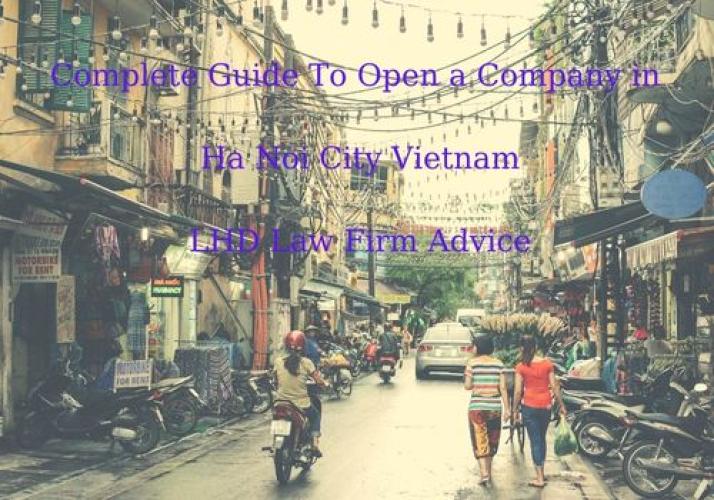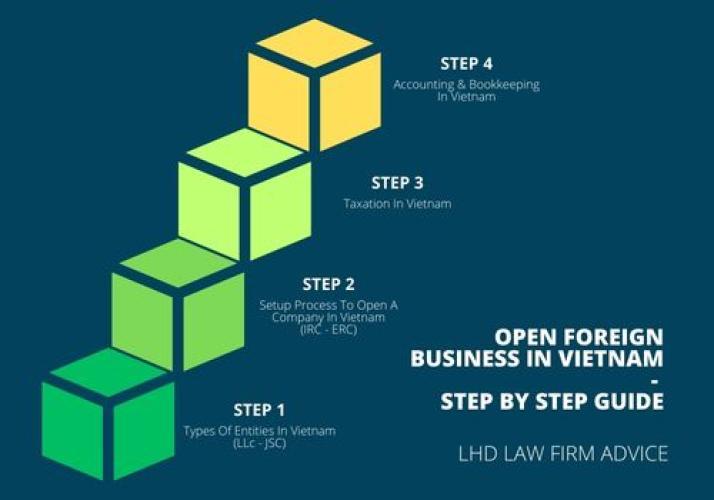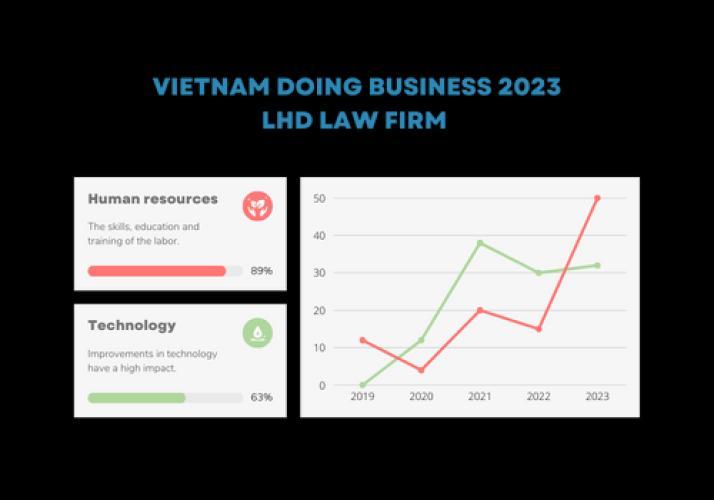Doing Business in Vietnam 2024 Opportunities and Challenges
- 29/07/2024

.jpg)
 CONTENT
CONTENT
 CONTENT
CONTENT
Doing Business in Vietnam 2024 Opportunities and Challenges
Vietnam's economic landscape in 2024 presents a compelling mix of opportunities and challenges for businesses looking to establish or expand their presence in this dynamic Southeast Asian nation. As the country continues its robust growth trajectory and increasing integration into the global economy, it offers unique advantages for savvy investors and entrepreneurs. This article delves into the key aspects of doing business in Vietnam in 2024, providing insights into the market, investment climate, workforce, digital transformation, cultural considerations, regulatory environment, and strategic approaches for success.
Introduction to the Vietnamese Market
Overview of Vietnam's Economic Landscape in 2024
Vietnam's economy in 2024 stands as a testament to the country's resilience and adaptability. Following a period of recovery from global economic disruptions, Vietnam has emerged stronger, with its GDP growth rate projected to reach 6.8% in 2024, according to the World Bank. This impressive figure outpaces many of its regional counterparts and positions Vietnam as an attractive destination for foreign investment.
The country's economic structure continues to evolve, with a shift towards higher value-added industries and services. The manufacturing sector, long a cornerstone of Vietnam's economy, has diversified beyond traditional labor-intensive industries to include more technologically advanced production. This transformation is evident in the burgeoning electronics and automotive components industries, which have attracted significant foreign direct investment.
In parallel, Vietnam's service sector has experienced remarkable growth, driven by a rising middle class and increased consumer spending. The retail, hospitality, and financial services industries have all seen substantial expansion, creating new opportunities for both domestic and international businesses.
The Importance of Vietnam in Southeast Asia's Economy
Vietnam's strategic importance within the Southeast Asian economic landscape has grown significantly in recent years. As a member of ASEAN, Vietnam plays a crucial role in regional economic integration and cooperation. The country's participation in various free trade agreements, including the Comprehensive and Progressive Agreement for Trans-Pacific Partnership (CPTPP) and the EU-Vietnam Free Trade Agreement (EVFTA), has further enhanced its position as a key player in global trade networks.
Vietnam's geographic location, with its long coastline and proximity to major Asian markets, makes it an ideal hub for regional trade and manufacturing. The country has invested heavily in infrastructure development, including ports, highways, and industrial parks, to capitalize on this advantage and facilitate smoother business operations.
Moreover, Vietnam's growing influence in the region is reflected in its increasing attractiveness as an alternative manufacturing base for companies looking to diversify their supply chains. This trend, accelerated by global events and geopolitical considerations, has positioned Vietnam as a beneficiary of supply chain shifts, particularly in industries such as electronics, textiles, and furniture.
Key Economic Indicators and Trends
Understanding the key economic indicators and trends is crucial for businesses considering entry into the Vietnamese market. In 2024, inflation is expected to remain under control at around 3.5%, providing a stable environment for business planning and investment. The Vietnamese dong has maintained relative stability against major currencies, supported by the central bank's prudent monetary policies.
Foreign direct investment (FDI) inflows continue to be a significant driver of economic growth, with the government actively encouraging investment in priority sectors such as high-tech industries, renewable energy, and infrastructure development. The country's export-oriented economy remains strong, with a diverse range of products including electronics, textiles, and agricultural goods contributing to a positive trade balance.
Another notable trend is the rapid urbanization and the growth of Vietnam's middle class. This demographic shift is driving increased consumer spending and creating new market opportunities across various sectors, from retail and real estate to healthcare and education.
Understanding the Investment Climate
Recent Economic Reforms and Their Impact
Vietnam's investment climate in 2024 is shaped by a series of economic reforms implemented in recent years. These reforms have been designed to improve the ease of doing business, attract foreign investment, and enhance the country's competitiveness in the global market.
One of the most significant reforms has been the streamlining of administrative procedures for business registration and investment licensing. The government has introduced online platforms and one-stop-shop services to reduce bureaucracy and expedite the process of setting up businesses. This has substantially reduced the time and cost associated with starting a business in Vietnam.
Another key reform has been the gradual liberalization of various sectors previously restricted to foreign investment. The government has increased foreign ownership limits in certain industries and opened up new sectors for foreign participation. This has created opportunities in areas such as education, healthcare, and telecommunications, which were previously more challenging for foreign investors to enter.
The reform of state-owned enterprises (SOEs) has also been a focus, with ongoing efforts to privatize and restructure these entities. This process, known as "equitization" in Vietnam, has created opportunities for private sector participation and improved the overall efficiency of key industries.
The Role of Foreign Direct Investment (FDI) in Vietnam
Foreign Direct Investment continues to play a crucial role in Vietnam's economic development. In 2024, FDI remains a key driver of growth, technology transfer, and job creation. The government has maintained its commitment to creating a favorable environment for foreign investors, recognizing the importance of FDI in achieving its economic development goals.
Key sectors attracting FDI include manufacturing, real estate, retail, and renewable energy. The government has introduced incentives for investments in high-tech and environmentally friendly projects, aligning with its goal of moving up the value chain and promoting sustainable development.
Vietnam's participation in various free trade agreements has further enhanced its attractiveness as an FDI destination. These agreements provide investors with access to a broader market and preferential trade terms, making Vietnam an attractive base for export-oriented manufacturing.
Key Sectors for Investment Opportunities in 2024
Several sectors stand out as particularly promising for investment in Vietnam in 2024:
- High-tech Manufacturing: With a focus on attracting advanced technology and fostering innovation, Vietnam offers attractive incentives for investments in sectors such as semiconductors, robotics, and aerospace components.
- Renewable Energy: The government's commitment to increasing the share of renewable energy in the national power mix has created significant opportunities in solar, wind, and biomass energy projects.
- E-commerce and Digital Services: The rapid growth of Vietnam's digital economy has opened up opportunities in e-commerce, fintech, and digital content creation.
- Healthcare and Pharmaceuticals: An aging population and rising middle class have increased demand for quality healthcare services and pharmaceuticals, creating opportunities for foreign investment in hospitals, clinics, and pharmaceutical manufacturing.
- Education and Training: The demand for quality education and vocational training presents opportunities for foreign educational institutions and training providers to enter the market.
These sectors benefit from supportive government policies, growing domestic demand, and export potential, making them attractive options for foreign investors looking to enter or expand in the Vietnamese market.
The Labor Force Advantage
Analyzing Vietnam's Skilled Workforce
Vietnam's labor force is one of its most significant assets, offering a compelling combination of skills, youth, and cost-effectiveness. In 2024, the country's workforce continues to evolve, adapting to the demands of an increasingly sophisticated economy.
The Vietnamese workforce is characterized by its youthfulness, with a median age of around 32 years. This demographic dividend provides businesses with access to a pool of energetic, adaptable workers who are eager to learn and embrace new technologies. The government's focus on education and vocational training has resulted in a steady increase in the skill level of the workforce, particularly in areas such as engineering, IT, and manufacturing.
Vietnam's education system has placed a strong emphasis on STEM (Science, Technology, Engineering, and Mathematics) subjects, producing a growing number of graduates in these fields. This focus aligns well with the country's ambition to become a hub for high-tech industries and innovation.
Moreover, the workforce demonstrates a strong work ethic and a willingness to learn, traits that are highly valued by foreign employers. Many Vietnamese workers are multilingual, with English proficiency continuing to improve, facilitating easier communication in international business settings.
Cost-Effectiveness: Balancing Quality and Affordability
One of the key attractions of Vietnam's labor force is its cost-effectiveness. Labor costs in Vietnam remain competitive compared to many other countries in the region, including China. This cost advantage allows businesses to achieve significant savings on labor expenses without compromising on quality.
In 2024, while wages have seen a gradual increase in line with economic growth and productivity gains, they remain attractive for foreign investors. The government has implemented a balanced approach to minimum wage increases, ensuring that workers benefit from economic growth while maintaining Vietnam's competitiveness as an investment destination.
It's important to note that labor costs vary across different regions of Vietnam, with major cities like Ho Chi Minh City and Hanoi generally having higher wage levels compared to smaller cities and rural areas. This regional variation allows businesses to choose locations that best fit their cost structures and operational needs.
Building Local Partnerships: Benefits and Strategies
Developing strong local partnerships is crucial for successfully leveraging Vietnam's labor force advantage. These partnerships can take various forms, including joint ventures with local companies, collaborations with educational institutions, or engagement with local recruitment agencies.
Local partners can provide valuable insights into the labor market, help navigate cultural nuances, and assist in identifying and recruiting top talent. They can also play a crucial role in understanding and complying with local labor laws and regulations, which can be complex for foreign entities to navigate alone.
Strategies for building effective local partnerships include:
- Engaging with local business associations and chambers of commerce to network and identify potential partners.
- Collaborating with universities and vocational training institutions to develop tailored training programs and recruit fresh graduates.
- Participating in job fairs and industry events to build brand awareness and attract talent.
- Investing in corporate social responsibility initiatives to build goodwill and strengthen community relationships.
By adopting these strategies, businesses can tap into the full potential of Vietnam's labor force, creating a win-win situation that benefits both the company and the local community.
Digital Transformation in Vietnam
Growth of the Digital Economy in 2023
The digital economy in Vietnam has experienced exponential growth, with 2023 marking a significant milestone in its development. According to recent data, the digital sector contributed approximately 14.3% to Vietnam's GDP in 2023, showcasing its increasing importance in the country's economic landscape.
E-commerce has been at the forefront of this digital revolution. The sector saw a year-on-year growth of 19% in 2023, reaching a market value of US$30 billion. This rapid expansion has been fueled by increasing internet penetration, growing smartphone usage, and changing consumer behaviors, particularly among the younger population.
The COVID-19 pandemic acted as a catalyst for digital adoption across various sectors. Businesses, from small local enterprises to large corporations, accelerated their digital transformation efforts. This shift led to a surge in demand for digital services, including online education, telemedicine, and remote working solutions.
E-commerce Trends and Future Projections
Looking ahead to 2024 and beyond, the e-commerce sector in Vietnam is poised for continued growth. Key trends shaping the future of e-commerce include:
- Mobile Commerce: With smartphone penetration exceeding 80% of the population, mobile shopping is becoming the preferred method for online purchases. Businesses are optimizing their platforms for mobile users to capture this growing market.
- Social Commerce: The integration of e-commerce functionalities into social media platforms is gaining traction. Platforms like Facebook and Instagram are increasingly being used not just for product discovery but also for direct purchases.
- Personalization and AI: E-commerce companies are leveraging artificial intelligence and machine learning to offer personalized shopping experiences, product recommendations, and customer service.
- Last-Mile Delivery Innovation: As e-commerce grows, there's an increased focus on improving last-mile delivery services. Companies are investing in logistics networks and exploring innovative delivery methods, including drones and autonomous vehicles.
Projections suggest that the e-commerce market in Vietnam could reach US$40 billion by 2025, representing significant opportunities for both local and international businesses.
Leveraging Fintech Opportunities in Vietnam
The fintech sector in Vietnam has emerged as a key player in the country's digital transformation. In 2023, Vietnam was home to over 200 fintech companies, offering services ranging from digital payments and peer-to-peer lending to insurtech and blockchain applications.
Key developments in the fintech space include:
- Digital Payments: The adoption of digital payment solutions has skyrocketed, with mobile wallets and QR code payments becoming increasingly common in both urban and rural areas.
- Open Banking: The State Bank of Vietnam is developing regulations to support open banking, which is expected to foster innovation and competition in financial services.
- Blockchain and Cryptocurrencies: While the regulatory environment for cryptocurrencies remains cautious, there's growing interest in blockchain technology for applications in supply chain management, identity verification, and cross-border payments.
- Insurtech: The insurance sector is undergoing digital transformation, with startups offering innovative products and services tailored to the Vietnamese market.
For businesses entering the Vietnamese market, understanding and leveraging these digital trends is crucial. Companies that can integrate digital solutions into their operations and offerings are likely to gain a competitive edge in this rapidly evolving landscape.
Cultural Insights for Successful Business Engagement
Understanding Vietnamese Business Culture
Vietnamese business culture is a unique blend of traditional values and modern practices, shaped by the country's history, Confucian heritage, and ongoing global integration. Understanding and respecting this cultural context is crucial for foreign businesses looking to establish successful operations in Vietnam.
Key aspects of Vietnamese business culture include:
- Hierarchy and Respect: Vietnamese society places great importance on hierarchy and seniority. In business settings, this translates to respect for authority and decision-making processes that often involve multiple levels of approval.
- Face and Harmony: The concept of "saving face" is crucial in Vietnamese culture. Avoiding public criticism or confrontation and maintaining harmonious relationships are highly valued in business interactions.
- Collectivism: Vietnamese culture tends to be more collectivist than individualist. This manifests in business through an emphasis on group consensus and the importance of considering how decisions affect the entire team or organization.
- Indirect Communication: Vietnamese communication style often favors indirect and nuanced expressions, especially when dealing with sensitive or negative topics. Understanding and adapting to this style can prevent misunderstandings and foster better relationships.
Importance of Relationship-Building in Vietnam
Building and maintaining strong relationships, or "guanxi," is fundamental to business success in Vietnam. Personal connections often play a significant role in business dealings, sometimes even taking precedence over formal contracts or agreements.
Strategies for effective relationship-building include:
- Investing Time: Be prepared to invest time in cultivating relationships. Business deals often develop slowly as trust is built over multiple meetings and social interactions.
- Networking: Attend industry events, join business associations, and participate in community activities to expand your network and build connections.
- Social Engagements: Be open to social invitations outside of formal business settings. Shared meals and social events are often where deeper connections are forged.
- Gift-Giving: While being mindful of anti-corruption laws, small gifts as tokens of appreciation can help in building relationships. However, it's important to understand the appropriate context and value for such gestures.
Communication Styles: Navigating Nuances and Etiquette
Effective communication in Vietnamese business settings requires an understanding of cultural nuances and etiquette. Key considerations include:
- Non-Verbal Communication: Pay attention to non-verbal cues, as they often convey messages that may not be explicitly stated. Maintaining a calm and composed demeanour is generally appreciated.
- Titles and Addressing: Use appropriate titles and forms of address. When in doubt, it's better to err on the side of formality.
- Language: While English is increasingly used in business settings, especially in major cities, demonstrating an effort to learn and use basic Vietnamese phrases can be greatly appreciated.
- Patience in Negotiations: Negotiations may take longer than expected. Be patient and avoid pushing for quick decisions, as this can be perceived as aggressive or disrespectful.
- Follow-Up and Clarity: Given the indirect nature of communication, it's important to follow up on discussions and confirm understandings in writing to ensure clarity.
By being attuned to these cultural aspects and adapting your approach accordingly, you can build stronger, more productive business relationships in Vietnam.
Regulatory Framework for Foreign Businesses
Overview of Regulations Affecting Foreign Investments
The regulatory environment for foreign businesses in Vietnam has evolved significantly in recent years, with the government implementing reforms to attract foreign investment while safeguarding national interests. Key regulations that foreign investors should be aware of include:
- Investment Law: This law, along with its implementing decrees, outlines the rights and obligations of foreign investors, investment incentives, and procedures for establishing businesses in Vietnam.
- Enterprise Law: This law governs the establishment, management, and operation of various business entities in Vietnam, including those with foreign ownership.
- Law on Securities: For businesses interested in capital markets, this law regulates securities issuance, trading, and related services.
- Competition Law: This law aims to create a fair competitive environment and includes provisions on merger control that may affect foreign investors' acquisition strategies.
- Labor Code: This outlines the rights and obligations of employers and employees, including regulations on working hours, wages, and social insurance.
It's important to note that regulations can vary depending on the sector and type of investment. Some sectors have specific foreign ownership limits or additional licensing requirements.
Licensing Procedures and Compliance Requirements
The process of obtaining necessary licenses and permits for foreign businesses in Vietnam has been streamlined in recent years, but it can still be complex. Key steps typically include:
- Investment Registration Certificate (IRC): This is required for most foreign investment projects and is obtained from the Department of Planning and Investment.
- Enterprise Registration Certificate (ERC): This is needed to establish a legal entity in Vietnam and is usually obtained after receiving the IRC.
- Business-specific licenses: Depending on the nature of the business, additional licenses may be required (e.g., retail license for trading companies).
- Tax registration: All businesses must register for tax codes with the local tax authority.
Compliance requirements for foreign businesses include:
- Regular financial reporting to relevant authorities
- Annual compliance with tax obligations
- Labor law compliance, including social insurance contributionsand adherence to occupational health and safety regulations
- Intellectual property protection and enforcement
Navigating the licensing procedures and compliance requirements in Vietnam requires a thorough understanding of the regulatory framework and ongoing monitoring of changes to ensure full compliance.
Intellectual Property Rights and Protections
Protecting intellectual property (IP) rights is crucial for foreign businesses operating in Vietnam, as IP infringement remains a significant concern. Key aspects of IP rights and protections in Vietnam include:
- Trademarks: Registering trademarks with the National Office of Intellectual Property is essential to establish ownership and protect brand identity.
- Patents: Obtaining patents for inventions or innovative processes can provide legal protection against unauthorized use by competitors.
- Copyrights: Copyright registration is not mandatory in Vietnam, but it can help establish ownership and facilitate enforcement actions in case of infringement.
- Enforcement: While enforcement of IP rights has improved in recent years, challenges such as lengthy legal proceedings and inconsistent judgments still exist.
Foreign businesses should conduct thorough due diligence on IP rights before entering the Vietnamese market and implement strategies to protect their intellectual assets, including monitoring for infringements and taking prompt legal action when necessary.
Geopolitical Considerations
The Impact of Global Tensions on Vietnam’s Market
Vietnam's geopolitical landscape is influenced by regional dynamics and global tensions, which can have implications for businesses operating in the country. Key factors to consider include:
- Regional Relationships: Vietnam's relationships with neighbouring countries and major powers shape its geopolitical position and can impact business operations.
- Trade Policies: Changes in global trade policies, such as tariffs and trade agreements, can affect Vietnam's export-oriented economy and industries.
- Security Concerns: Geopolitical tensions in the region, particularly in the South China Sea, can create uncertainties that may impact investment decisions and business activities.
- Diplomatic Alliances: Vietnam's diplomatic relations with other countries can open up opportunities for collaboration or pose challenges depending on the geopolitical context.
Strategies for Managing Risk in an Uncertain Environment
To navigate geopolitical risks in Vietnam, businesses can adopt several strategies to mitigate potential challenges:
- Diversification: Diversifying supply chains, markets, and partnerships can reduce reliance on specific geopolitical regions or actors.
- Local Partnerships: Collaborating with local partners who have a deep understanding of the political and regulatory environment can provide valuable insights and support.
- Scenario Planning: Developing contingency plans and scenario analyses can help businesses prepare for various geopolitical outcomes and adapt their strategies accordingly.
- Government Relations: Building constructive relationships with government authorities and staying informed about policy developments can help businesses anticipate and respond to geopolitical changes effectively.
By proactively assessing and addressing geopolitical risks, businesses can enhance their resilience and competitiveness in the dynamic Vietnamese market.
Mistakes to Avoid When Entering the Vietnamese Market
Common Pitfalls for New Entrants
Entering the Vietnamese market presents unique challenges for foreign businesses, and avoiding common pitfalls is essential for success. Some key mistakes to avoid include:
- Lack of Cultural Understanding: Failing to appreciate and respect Vietnamese cultural norms can lead to misunderstandings, strained relationships, and ultimately, business failures.
- Insufficient Market Research: Inadequate research on local market dynamics, consumer preferences, and competitive landscapes can result in misguided strategies and product offerings.
- Neglecting Regulatory Compliance: Ignoring or misunderstanding regulatory requirements can lead to fines, legal issues, and reputational damage for foreign businesses.
- Unrealistic Expectations: Setting overly ambitious goals or timelines without considering the complexities of the Vietnamese market can result in disappointment and financial losses.
Misunderstanding Cultural Contexts
Misinterpreting cultural cues and contexts can significantly impact business interactions in Vietnam. Some common misunderstandings to avoid include:
- Direct Communication: Assuming that direct communication is always preferred can lead to friction, as Vietnamese business culture often values indirect and nuanced expressions.
- Individualism vs. Collectivism: Overemphasizing individual achievements over group harmony can be perceived negatively in a collectivist society like Vietnam.
- Gift-Giving Etiquette: Misunderstanding the significance and appropriateness of gift-giving practices can inadvertently offend or create obligations in business relationships.
- Decision-Making Processes: Expecting quick decisions or unilateral choices without consulting all stakeholders may clash with the consensus-building approach common in Vietnamese business culture.
Ignoring Local Market Dynamics
Neglecting the intricacies of the local market can hinder foreign businesses' ability to succeed in Vietnam. Key aspects to consider include:
- Competitive Landscape: Failing to assess local competitors and differentiate offerings can limit market penetration and growth opportunities.
- Consumer Behavior: Disregarding cultural preferences, purchasing habits, and trends can result in products or services that do not resonate with the target market.
- Pricing Strategies: Setting prices without considering local purchasing power, inflation rates, and competitive pricing can lead to market positioning challenges.
- Distribution Channels: Overlooking the importance of efficient distribution networks and logistics infrastructure can impede product accessibility and customer reach.
By avoiding these common mistakes and actively engaging with the cultural nuances and market dynamics of Vietnam, foreign businesses can position themselves for sustainable growth and success in the rapidly evolving business landscape.
Effective Market Entry Strategies
Choosing the Right Mode
Selecting the appropriate market entry strategy is critical for foreign businesses seeking to establish a presence in Vietnam. Depending on factors such as industry characteristics, investment size, risk tolerance, and long-term objectives, companies can consider various modes of entry, including:
- Joint Ventures: Partnering with a local company through a joint venture allows for shared resources, local expertise, and risk mitigation while navigating regulatory requirements.
- Wholly Foreign-Owned Enterprises (WFOEs): Establishing a WFOE provides full control over operations and decision-making but requires thorough market knowledge and compliance with local regulations.
- Representative Offices: Setting up a representative office enables market research, networking, and initial business development activities without engaging in commercial operations.
- Franchising: Expanding through franchising offers a low-risk entry option with established brand recognition and operational support, suitable for businesses in retail, food, and service sectors.
- Mergers and Acquisitions: Acquiring or merging with existing local businesses can accelerate market entry, provide access to established customer bases, and streamline operations.
Each market entry mode comes with its advantages, challenges, and considerations, requiring careful evaluation based on the specific goals and circumstances of the foreign business.
Conclusion
In conclusion, doing business in Vietnam offers significant opportunities for foreign investors, driven by the country's growing economy, skilled labour force, digital transformation, and strategic geopolitical position in Southeast Asia. However, navigating the Vietnamese market also presents challenges related to cultural nuances, regulatory frameworks, geopolitical risks, and market dynamics.
By understanding the Vietnamese business culture, building strong relationships, adapting communication styles, and complying with regulations, foreign businesses can establish a solid foundation for success in Vietnam. Moreover, by avoiding common pitfalls, managing geopolitical considerations, and selecting effective market entry strategies, companies can capitalize on the vast potential of the Vietnamese market and achieve sustainable growth in the long term.
Overall, Vietnam's dynamic business landscape rewards those who approach it with cultural sensitivity, strategic foresight, and a commitment to partnership and innovation. With the right mindset and proactive engagement, foreign businesses can thrive in Vietnam's vibrant and evolving economy."










0 comment